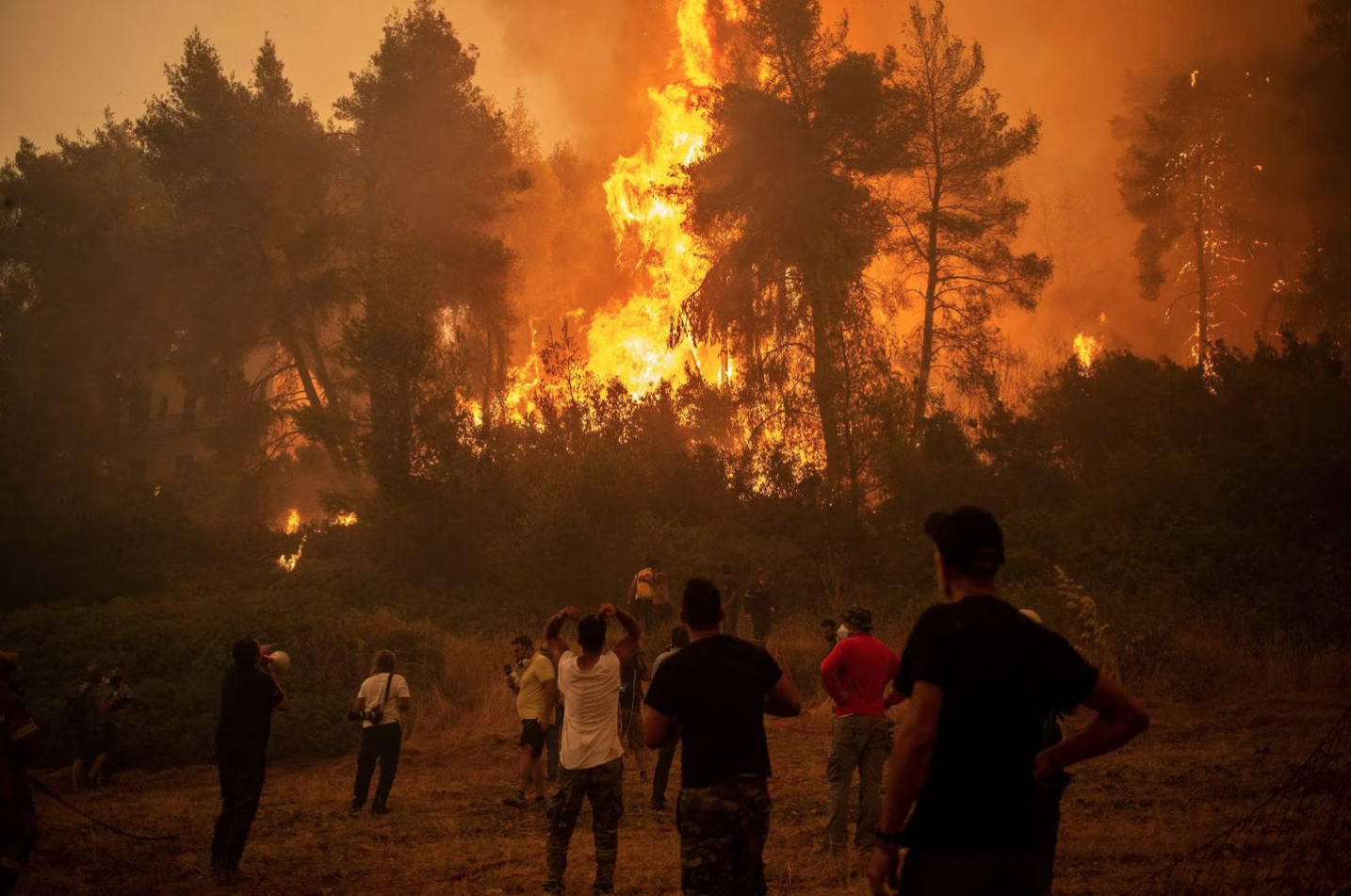Coauthors Fany Ramos Quispe, Kim Portmess
CoP27 has come and gone. As we start 2023, with all the best intentions and resolutions, we wonder who will support and operationalize the agreements reached at COP27?
One of the main outcomes of the United Nations Framework Climate Change Convention (UNFCCC) Conference of the Parties (CoP27) was the creation of a Loss and Damage (L&D) fund to assist and support the most vulnerable countries to climate change. This is a historic demand from the countries of the Global South, particularly small islands and the least developed nations, that are already suffering the impacts of extreme weather events and other climate disasters. In fact, the establishment of the loss and damage fund is critical to complement efforts in mitigation and adaptation that are already ongoing.
After 30 years of climate change discussions and negotiations, our global political leaders have failed to effectively confront the problem, provide global pathways to climate action and guide change for a just, inclusive and sustainable future. Many people around the globe, activists, environmentalists, scientists and citizens, distrust the outcomes of global gatherings, like CoP27, thus their legitimacy is weakened. However, many new spaces for participation and engagement have arisen simultaneously, trying to fill the gap between science, policy and society.
What are the leading outcomes from CoP 27?
The loss and damage fund is one of the main achievements of CoP27, however, this is only the beginning of a conversation that will set the agenda for the next few years. What countries should provide funding? How will funds be distributed? What happens when traditional ways of inhabiting the planet disappear? When cultural practices are transformed because of climate change, can they be compensated with money? How do we measure a payment for the destruction of the world?
The conversation continues with other important outcomes for the Americas. The Sharm el-Sheikh Implementation Plan highlights that a global transformation to a low-carbon economy will need at least USD 4-6 trillion per year; however, the goal of developed countries to mobilize USD 100 billion per year by 2020 has not happened. In 2023 countries will submit stronger and more ambitious climate plans to the UN Climate Change secretariat, and those will be analyzed to see how close we come to keeping 1.5°C within reach. Finally, a work programme on Just Transition was decided to be established.
The magnitude of the climate crisis poses other cascading challenges that should be faced in the near future and, if done well, could be the key to building a just, democratic and equitable world: improving participation, raising the voices of young people, building trust among countries and empowering leadership at all levels to deal with our common complex challenges.
Finding hope to face the climate crisis: Another meaning of leadership from the American continent
During the last three decades national and global leaders have discussed the impacts of human activities on the planet and the counter effects that modernity and development have on climate, nature and biodiversity, the so-called Anthropocene. This is an epoch in which humans are leading changes at global levels as a geological force. The prominent symptom of the Anthropocene is the climate crisis, caused by the rise of greenhouse gas emissions (GHE) and a human leadership characterized by advocating for endless economic growth, domination, expansion, and exploitation that includes centuries of human slavery.
Science has been clear for many years on the need to reduce emissions significantly to meet international targets and decarbonize human activities. Time is running out, in this critical context every action (and in-action) counts. However, there is still a gap to link science to policy and action, and there is no silver bullet to solve the wicked problems we face, including the climate emergency. So, how can we (re)build a new science-policy architecture and (re)activate our imaginations to think of alternative pathways to actively confront our problems?
The climate crisis is also a crisis of leadership and imagination to build consensus. Interestingly enough, at the same time CoP27 was taking place, 30 early and mid-career science technology and policy (IAI-STeP) fellows from 14 countries across the American continent met in Uruguay to address one of the most pressing challenges related to the climate crises: how to effectively link scientific/technical knowledge and social, political and ethical dimensions to support inclusive and action-oriented environmental policy.
The IAI-STeP fellows aim to work towards building a more functional and effective type of leadership every person can exemplify. A leadership that is pluralistic, ethical, collective, inclusive and horizontal, and more appropriate for the challenges of the 21st century. This leadership should be able to facilitate the effective engagement of all societal actors in the co-production of knowledge and solutions, to amplify the voices of those already suffering the impacts of climate change. Bringing to the table a rich diversity of knowledge and experiences, empathy, vulnerability, and the capacity to listen becomes a must to reimagine alternatives to development, build resilience, and perhaps consensus around solutions to the climate crisis.
COP27, like previous conferences, left many unsolved issues and concerns. Finance, accountability and transparency are pending issues once more. These topics are embedded in the structural problems that evolved alongside historical colonization, exclusion, and exploitation led by powerful groups in the past. That is why the “Common but Differentiated Responsibilities (CBDR)” principle was included in the UNFCCC, however, it has not yet thrived to effectively build consensus among current global leaders.
The results of COP27 are once again an example of opposing positions in our own American continent, positions that do not start from a shared vision of the climate crisis. Our countries continue to negotiate with different groups as developed, developing and least developed countries. We still need to confront and reconcile issues of injustice, racism, inequality and colonization. Will the day come when our continent takes a shared position on the climate crisis? We return to the question; who will support and operationalize the agreements reached at COP27? Perhaps it will be science, technology and policy fellows around the world who work with national governments, international organizations, universities, and private industry who will finally reconcile science, society and policy for effective action. We are confident that with a growing group of Inter-American leaders like the STeP Fellows, a broad, resilient and meaningful community working in decision-making positions, it can be done.
The opinions expressed in this publication are those of the author. They do not purport to reflect the opinions or views of the Inter-American Institute for Global Change Research (IAI) or its Parties.
Fany Ramos is an Environmental Engineer from the Instituto Politécnico Nacional (Mexico), with an M.Sc. in Environmental Change and International Development from the University of Sheffield (England). Member of OWSD Bolivia and current IAI STeP Fellow.
Kim Portmess is a Program Consultant at the Inter-American Institute for Global Change Research (IAI).













